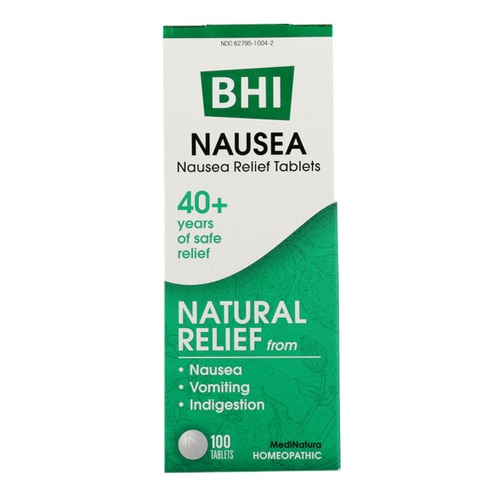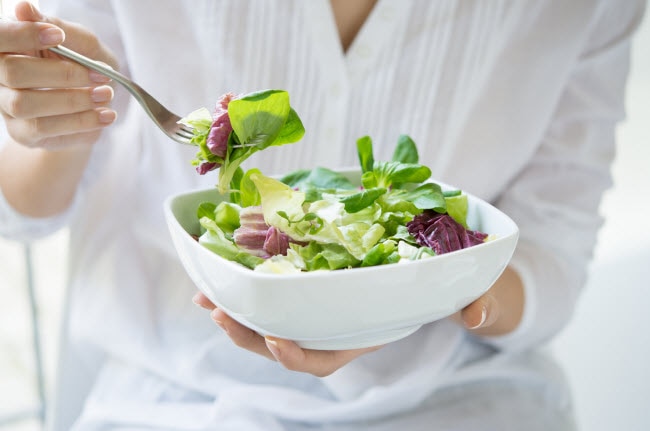Life may be going along just fine and then, bam: You’re hit with a headache—and not just temporary soreness but an ache of Herculean measures. Known as migraines, these whoppers of a health concern impact more than 38 million Americans, two to three of which suffer from them chronically. Distinct from a headache in that they tend to affect one side of the head, migraines are often accompanied by a litany of discomfiting symptoms, from nausea and vomiting to difficulty speaking and extreme light sensitivity.
In centuries past, these agonizing aches were treated with a number of bizarre therapies, including placing garlic in the skull (with ancient surgical techniques, no less) and taking baths with warm water and honey.
But in 1983, researchers at London’s Hospital for Sick Children reported that of 88 underage migraine sufferers, 78 recovered completely after adhering to an elimination diet. Ever since, physicians and scientists have confirmed that dietary habits can be a huge migraine trigger—and, on the flipside, cure.
With that in mind, here are the foods you should and should not eat if you, too, suffer from these granddaddies of miseries:
How to follow a migraine diet
Eat this: Fatty Fish
Salmon, mackerel, trout, albacore tuna—they don’t just taste great grilled or as sashimi; they can also be a boon for migraine sufferers. Rich in Omega-3 fatty acids, they’ve been shown to reduce the duration, frequency, and intensity of migraines. Some suggest this is due to the brain and heart benefits Omega-3s offer, which may also help stave off stress—one of the biggest migraine triggers.
Not that: Preserved and cured meats
Happen to be a fan of bacon and ham? It may be time to search for an alternative to your cravings—or at least a healthier version. Preserved and cured meats such as these, as well as sausages, hot dogs, and luncheon meats, contain nitrates—an additive that’s used to uphold color and to halt the growth of harmful microorganisms. When ingested, they may cause vasodilation of the blood vessels, which can lead to a migraine of monstrous proportions. Reach for uncured or nitrate-free varieties—or, better yet, avoid processed meats altogether.
Eat this: Green vegetables
Following that aforementioned 1983 study, a list of “safe, pain-free foods” emerged for migraine sufferers. Chief among them? Green vegetables, such as spinach, broccoli, Swiss chard, and collards. Why? They’re rich in magnesium, which has potent migraine-relieving (and preventative) properties. The American Migraine Foundation reports that magnesium may be particularly helpful for migraine sufferers who also experience what’s known as “migraine aura”—a primarily visual (but also sensory) symptom that may cause you to see bright spots or experience loss of vision.
Not that: Citrus fruits
From a fresh orange to a juicy grapefruit, citrus fruits seem like a sound choice: they’re jam-packed with nutrients and they taste delicious. But these gems are also deemed one of the most common culprits of migraines. Better be safe than sorry and reach for cranberries or cherries instead: Both types of fruit are on the “safe” list.
Eat this: Brown rice
Much like green vegetables, brown rice’s high magnesium content renders it a winning option for migraine sufferers. What’s more, brown rice is gluten-free—and more and more studies are revealing that people with gluten sensitivity or Celiac may be prone to migraines. The alternative-sushi-staple can also aid in digestion.
Not that: MSG
Monosodium glutamate is already admonished for its link to obesity, but recent research shows that the additive may also be a migraine-trigger. And it’s not exclusively reserved to Chinese restaurants, either: MSG is found in foods as seemingly innocuous as ranch dressing. In other words? Check your labels carefully—and be sure to double-check with your server when you’re eating out.
Eat this: Ginger
As Keri Glassman, R.D., reported to the Today Show, ginger may be a migraine-sufferer’s secret weapon—in both warding them off entirely and finding relief when they strike. The fragrant, spicy root, she says, has “the ability to block prostaglandins (neurotransmitters that play a role in inflammation), which cause a slight swelling of your brain that may be the source of your discomfort.” Ginger is also renowned for its power to aid in the relief of nausea—which is one of the most common complaints of migraine sufferers.
Not that: Gorgonzola
…and camembert, gruyere, cheddar and gouda—or, really, any cheese that has been aged. Researchers aren’t completely sure why these cheeses spark migraines, but some point to their inclusion of compounds called tyramines, which may lead to the release of the chemical norepinephrine and cause changes in the brain that can lead to migraines. Can’t imagine life without some creaminess? Go for fresh iterations, such as ricotta and mozzarella, but do note that dairy products in general are prevalent migraine triggers.
The best advice? For two weeks, eliminate the prohibited foods listed here, as well as gluten, nuts, chocolate, eggs and meat. Then, slowly introduce them, if you so choose, back into your diet. This will allow you to see which foods are triggers—and which ones heal.




